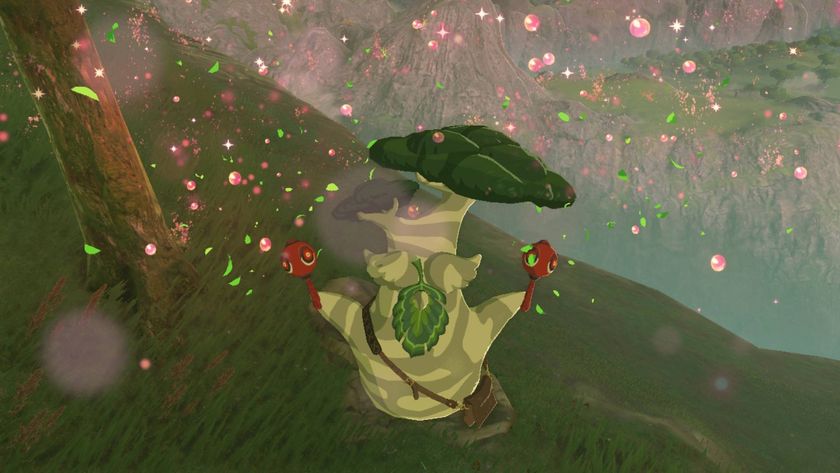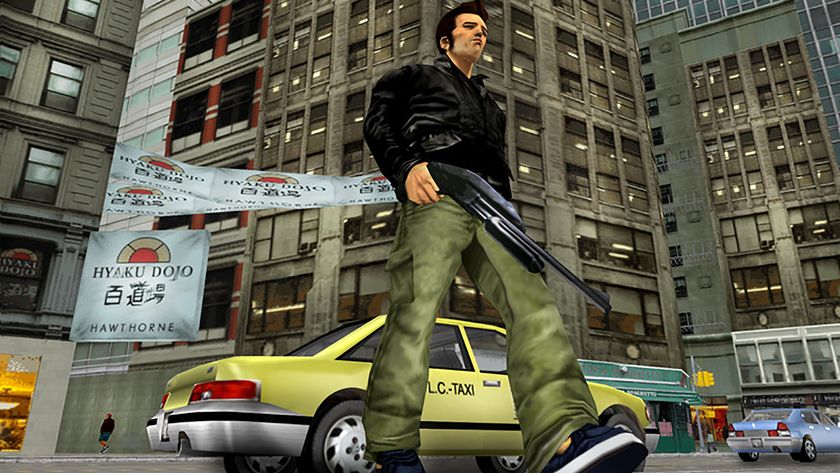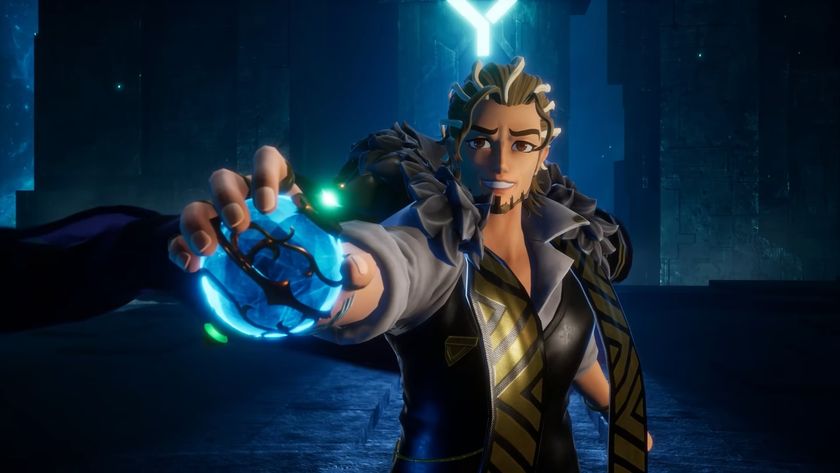Is voice acting always the best option, or are some games better without it?
Making progress is a lot like making moonshine: damned difficult to see exactly what’s going to happen while you’re actually doing it. Simply, it often takes hindsight to truly appreciate progress. When it comes to video game design, few single developments have been considered quite such major shifts as that of fully voiced characters. Here, just as in cinema, the medium has achieved its own great leap - exchanging silence for sound - but are we really so certain that this constitutes progress in and of itself?
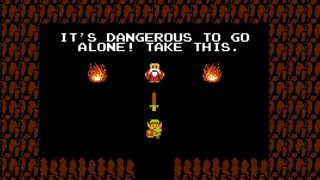
Typically, the answer to that question has always been ‘yes’. Fully voiced titles are better placed to reflect the world around us. The spoken word simply feels more alive, more resonant, a well acted-script betraying more emotion than simple stage direction ever could. Moreover, it's important to recall that even those retro games that went without VO only did so due to lack of opportunity, rather than by artistic choice. Had their hardware only allowed it, we'd probably have seen a pint-sized Troy Baker appearing in every one.
There's no doubting the truth of these arguments. Where once there were text boxes, nowadays we enjoy every kind of explicit characterisation from timid tones to throaty brogues. However, just because the medium has made progress in this one respect, doesn't preclude it from regression in others. Consider pro-wrestling classic Smackdown! Here Comes the Pain, a game that offered an expansive and involving storyline (for a grappling title) all the way back in 2003. Despite 12 subsequent sequels, the game's narrative has yet to be bested, offering as it does an enormous amount of freedom and replayability. It also happens to be the very last entry in the license to completely eschew voice acting. And I don’t think that’s a coincidence…
You certainly can't fault any studio for embracing the spoken word. After all, the situation at voice acting’s genesis wasn't all that unlike the one that faced devs during the advent of 3D graphics. One moment you're perfecting a tried and true technology, and the next it's all massively old hat. For their part, many developers were likely excited by the change, whilst also being uncomfortably aware of the public's newfound demand for such features. Needless to say that fully voiced characters quickly became the norm, right down to those annoying, one-line NPCs milling about in the background.
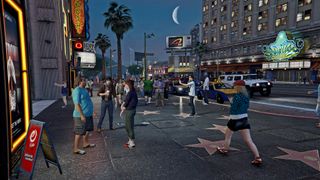
So, what exactly did we lose in the switchover to fully voiced video games? Well, as the aforementioned Smackdown! aptly demonstrates, a good deal of malleability, and more. The first victim of any voice-over tends to be variety - i.e. the text-based dev’s ability to quickly create, implement, rework and edit lengthy reams of dialogue. By contrast, vocal-heavy adventures often require that their writers pay close notice to the number of characters being written, as each one will likely require either a brand new actor, or additional work from another. The same goes for length of lines - the more succinct the better, as that allows for more productive use of recording time, potentially at the cost of a more nuanced conversation.
Then there are issues of quality control. The larger a game gets, the more lines of dialogue it invariably creates, to the point that something like Fallout: New Vegas ends up with an absolutely astronomical 65,000. Given the game's near-two-year development cycle, that's, on average, around 124 lines being recorded every working day. And that's before factoring in the added requirements of writing time. Hitting even half of that figure would be beyond many studios, and while Bethesda should be applauded for its tireless work ethic - the studio is actually a fair bit smaller than you think - not even the best will in the world can safeguard you against occasional lapses in quality.
While a silent text box might easily be interpreted in a dozen different ways - ascribed any mood or accent - the spoken word, for better or worse, simply sticks in our minds, fast becoming the voice of that character. Where a masterful performance may come to define its text, so too does a shoddy or inappropriate reading, attaching itself to a character like some foul-smelling adhesive. All it takes is one lacking performance slipped through the net to completely undermine a viewer's sense of immersion. And what about the reuse of actors - talented though they are - whose voices seem to reappear with alarming regularity throughout a single game. First they were the butcher, now they're the policeman and soon enough they'll turn out to be the evil emperor too. Not a problem every game suffers, by a long way, but when it happens it's little different to spotting one of Oblivion's reused faces, and just as off-putting.
Sign up to the GamesRadar+ Newsletter
Weekly digests, tales from the communities you love, and more

Despite the very best of intentions, fully-voiced video games can sometimes amount to taking one step forward, and two steps backs. It can actually go beyond the quality of the acting, and bleed through into exactly how those voices are implemented too. Just look at the largely excellent Mass Effect series. Presenting dialogue options by type rather than actual content, on the one hand this approach does help to avoid the interminable tedium that accompanies choosing a line, then watching your avatar act it out. However, these titles can also force players into an aggravating game of interpretive guess work, after which they may still be surprised by a protagonist's choice of words. You selected 'rogueish jibe', the game went with 'hateful slur'. When you’re trying to role-play a chosen personality, it’s an immersion mine-field.
So, how do we go about fixing these issues, to attain a more balanced sense of progress? Well, Option A is that publishers continue to throw more money at the problem, laying out ever-larger funds for the writing, recording and implementation of a game's narrative elements. But then again, while many might - understandably - argue for it as the poster child for modern, fully-voiced RPGs done right(ish), Mass Effect has flaws. And if the combined might of BioWare and EA couldn't work out the kinks, then what chance has any other studio?
What we're dealing with here is a business, and you only need look at the state of many ballooning Kickstarter projects to see that more money doesn't always signify success. As well as that, while more money may generate greater scope, both will always eventually hit a limit. If the choice comes to down to beefing up dialogue or adding in a jetpack mechanic, poor old narrative will never stand a chance. What I would suggest instead is more of a compromise solution, and a redefinition of what 'silent' games have come to represent. Yes, they may 'come from the past', but that doesn't mean they're necessarily outdated. Just look at The Artist, a silent movie that bagged an Oscar as recently as 2011 - not because it glorified the past, but because it achieved different things creatively than a conventional 'talkie' ever could.

As to that second option, I'd suggest we start by looking at the examples set by games like Persona 4. Sure, there may be plenty of audible dialogue on show, but also plenty of smaller moments in which the player is required to read. Far from breaking immersion through inconsistency, the system actually works beautifully. Since we already know how each character sounds, dubbing their lines in manually (i.e. with your head) is no task at all, and if that allows resources to be better spent on another branching path then so much the better. And experientially, it’s a best-of-both-worlds situation, facilitating robust ‘realism’ through the inclusion of actual voices, but leaving the player plenty of room to interpret. By all means, let our characters continue to chatter in the cutscenes, or in an area I'm too busy battling beasties to read, but let's stop expecting voice overs as a simple matter of course.
Voice acting is of course a wonderful thing when used right, but it isn’t the one true path many think it to be, nor is it something with one true, correct model for use. Like any component of creative design, it’s a tool, not a rule, and as narratives become ever more malleable, so too should the way in which they’re related.
I'll be quiet now.

